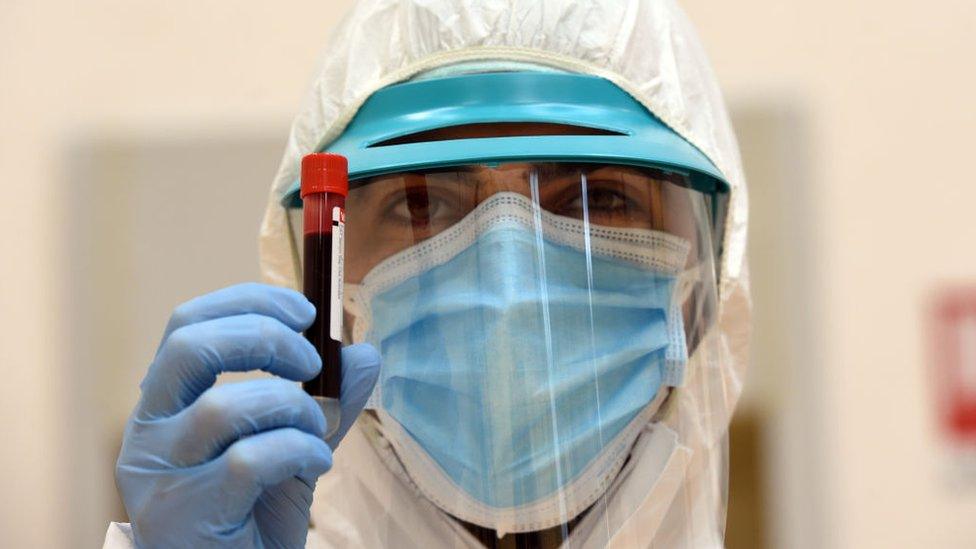Coronavirus: Tracers ask over 100,000 to self-isolate
- Published
- comments
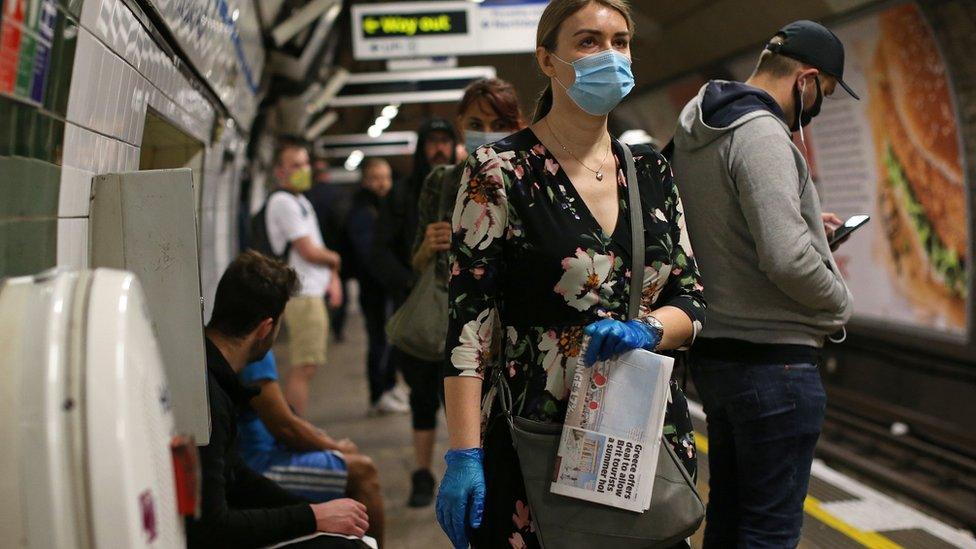
More than 100,000 people in England have been asked to self-isolate by contact tracers in the past three weeks to contain coronavirus, data shows.
The individuals have all had close contact with infected people and have now been told to stay at home by the new NHS Test and Trace service.
But the service, which launched at the end of May, continues to struggle to engage people who have tested positive.
A quarter of those who tested positive could not be reached by tracers.
Meanwhile, data on infection rates suggest the amount of virus is not rising despite the relaxation of restrictions over the past six weeks.
And another 149 deaths following a positive diagnosis of coronavirus have been reported in the past 24 hours, bringing the total number of fatalities to more than 43,200.
What is the infection data telling us?
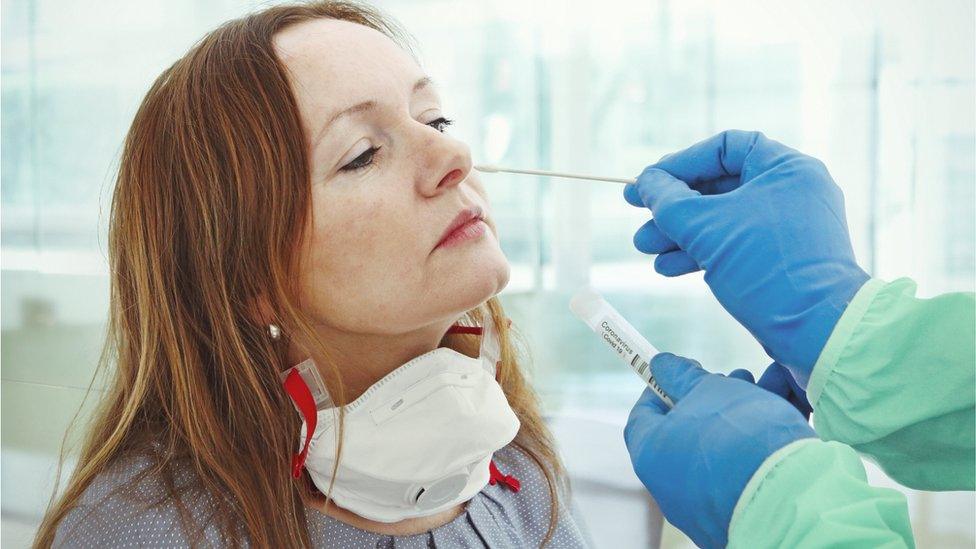
Swab tests are used to look for the presence of the virus
There are three key sources that provide evidence about infection rates - and overall it looks like they are falling.
The government has just released the latest estimate for the R number - the rate at which infections are spreading.
It is between 0.7 and 0.9. A figure of below one means the number of new infections are going down.
The seven-day average for the number of daily confirmed cases currently stands at under 900, down from nearly 4,000 in the week the prime minister announced the first steps out of lockdown.
However, the Office for National Statistics surveillance programme suggests falling rates may have levelled off.
The findings released on Thursday found 14 out of 24,500 people tested in the community in England were infected.
This equates to 0.09% of the population being currently infected - or one in 1,100 people.
It is a small rise from the week before, but not enough to be considered statistically significant.
What about attempts to trace their contacts?
The NHS Test and Trace service has tried to trace the contacts of more than 20,000 people who have tested positive for Covid-19 since it was launched at the end of May.
Some 15,000 have provided details, giving the tracing service nearly 130,000 contacts.
Close to 114,000 of them - about nine in 10 - have been reached by the service over its first three weeks and asked to self-isolate at home.
In the most recent week performance in terms of numbers not engaging and numbers of contacts reached both dropped a little.
Baroness Dido Harding, the head of the service, said variability form week to week was to be expected.
She said she was happy with the performance so far, saying it would improve in the coming weeks and months and would play a vital role in "curbing" the spread of the virus.
The service has once again not been able to provide details for how quickly people are being contacted following a positive result.
Government advisers believe contacts need to be found within 48 hours for the service to be most effective.
Scotland, Northern Ireland and Wales run their own tracing services.

SCHOOLS: When will children be returning?
EXERCISE: What are the guidelines on getting out?
THE R NUMBER: What it means and why it matters
AIR TRAVELLERS: The new quarantine rules
LOOK-UP TOOL: How many cases in your area?


Public 'must play its part'
Prof Keith Neal, an expert in infectious diseases from the University of Nottingham, said the biggest issue lay with the attitude of the public.
He said the numbers coming forward for testing was thought to be lower than the actual number who are infected, while the fact that one in four people who test positive do not engage with the system was "worryng."
"These can only be sorted by members of the public as they require individuals to take the appropriate actions to reduce spread."
It comes as the NHS Test and Trace programme has started trialling walk-in testing centres. The pilots are being held in London, Newcastle, Rochdale and Slough.
They involve buildings as well as open-air locations, including a basketball court.
Currently, testing is available at hospitals, mobile testing units, regional drive-through centres, and via a postal service.
Follow Nick on Twitter, external
- Published27 May 2020
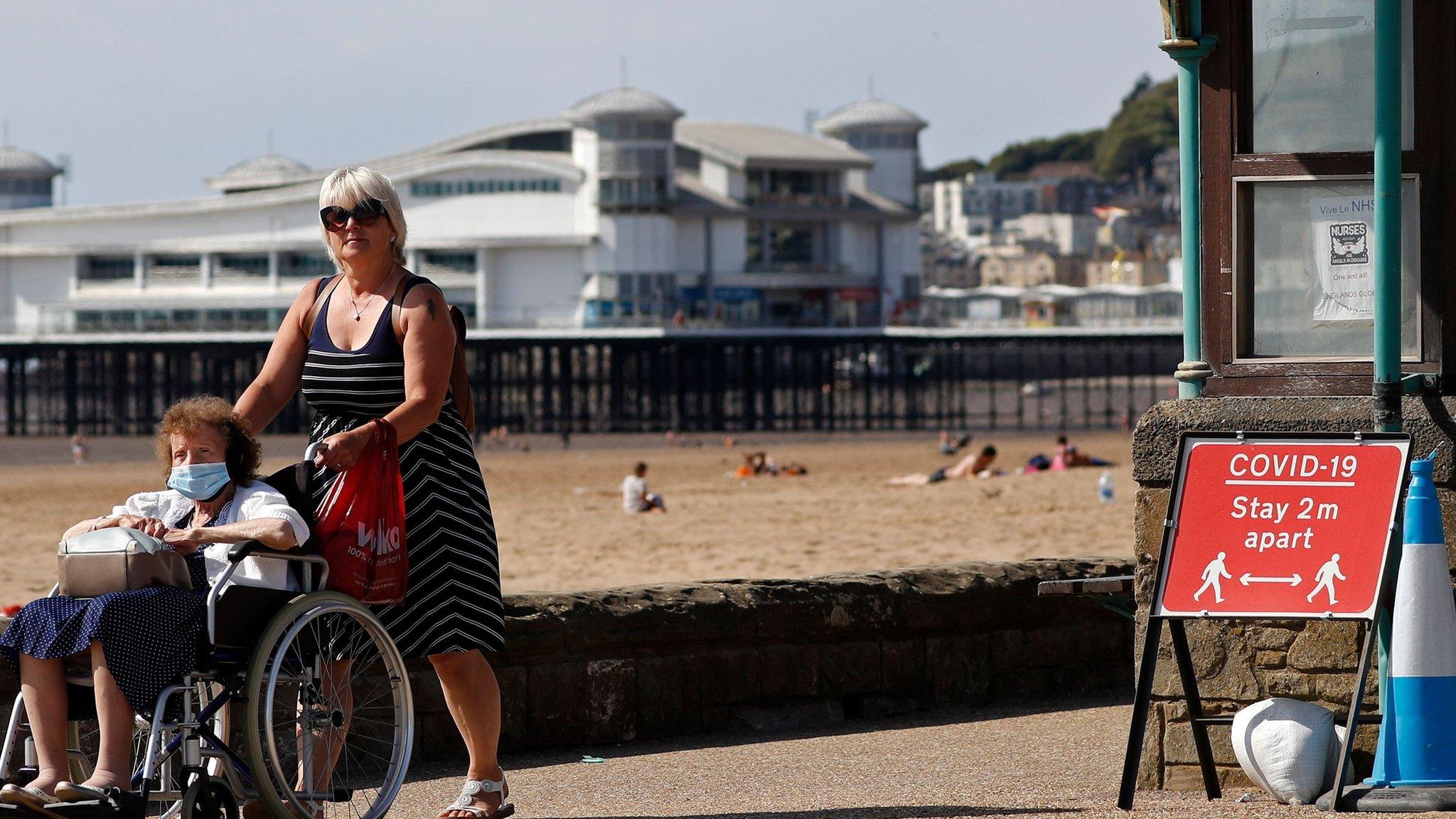
- Published18 April 2020
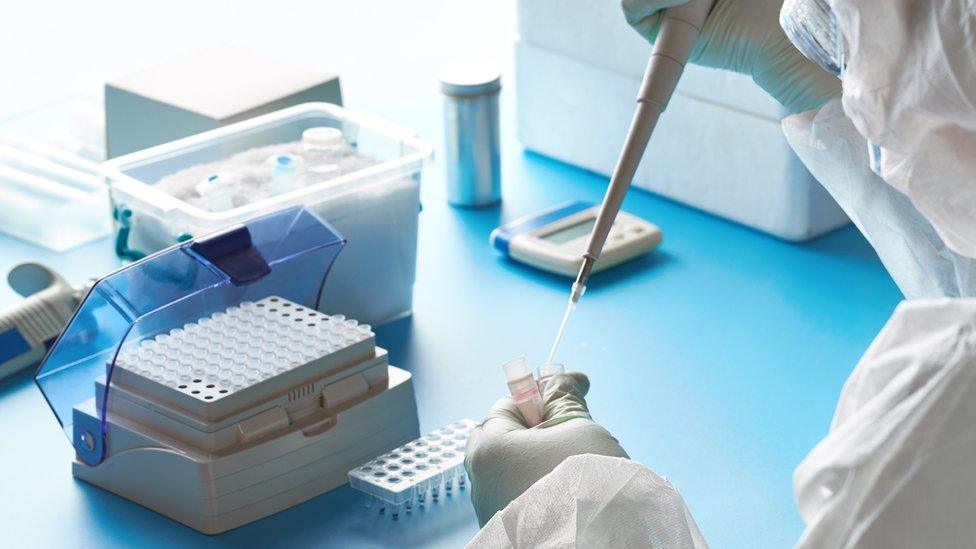
- Published3 May 2022
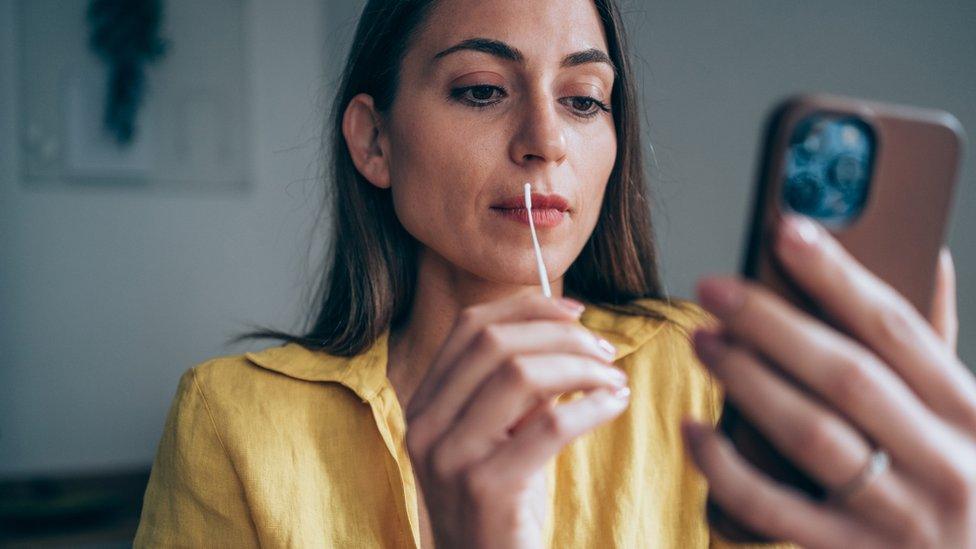
- Published4 May 2020
